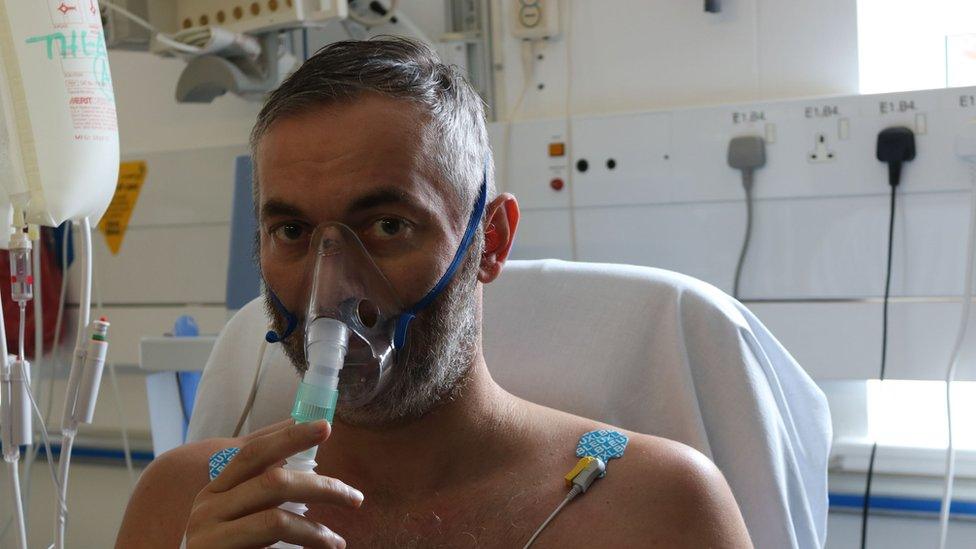Covid: Intensive care struggling as hospital admissions rise
- Published
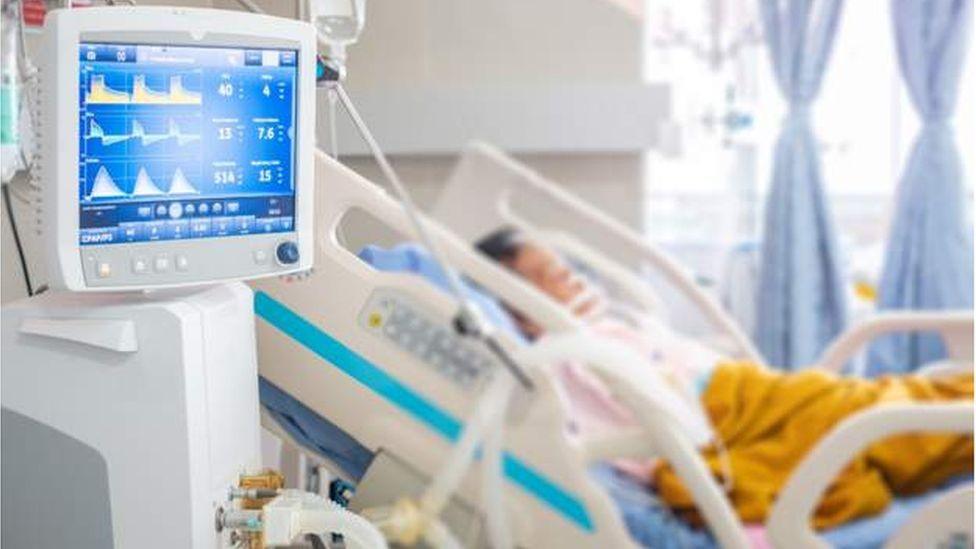
A combination of Covid cases and non-Covid patients is putting pressure on hospitals, says consultant Richard Pugh
An intensive care doctor has said Welsh hospitals are "terribly stretched" as Covid admissions rise.
Richard Pugh, an intensive care consultant in north Wales and chair of the Welsh Intensive Care Society, said staff were being forced to move patients between hospitals.
He blamed an unprecedented workload of non-Covid patients and increasing coronavirus cases.
There are not enough critical care beds, he added.
Numbers of patients with confirmed Covid had risen to 520 by Wednesday - including 143 in Cwm Taf Morgannwg, the highest level in the South Wales Valleys and Bridgend health board since the start of February.
In Cwm Taf Morgannwg, the number of patients have risen by 28% in a week. At the end of June, there were no patients with Covid at all in its beds.
Including suspected Covid and recovering patients, the number across Wales rises to 668, a daily average of 605, according to Digital Health and Care Wales. That's 7.8% of all patients in hospital.
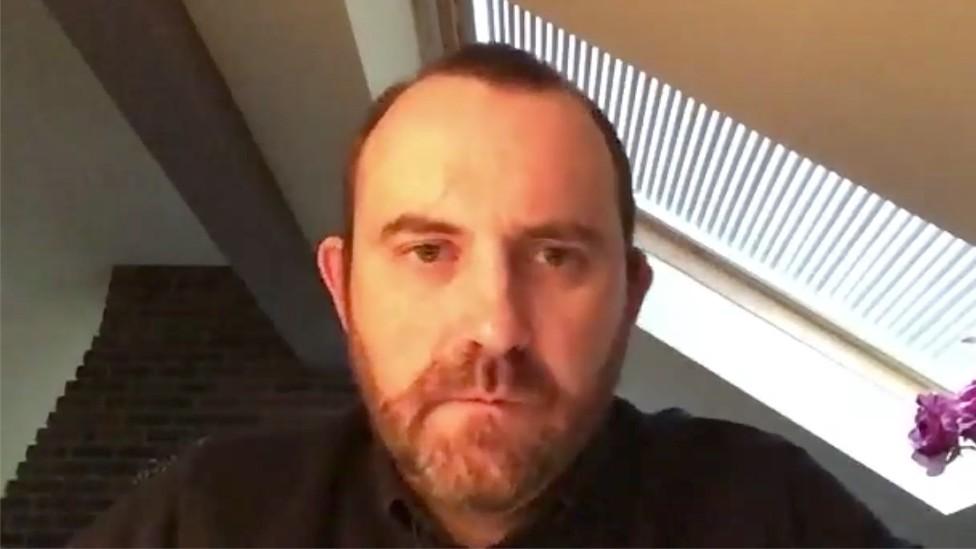
Dr Richard Pugh: People are exhausted
Mr Pugh said urgent surgery, such as cancer or vascular surgery, was being cancelled.
"It's just a tremendously difficult situation at the moment, and what's particularly difficult is that it's hard to really know when the situation is going to get better," he said.
"Our fears, of course, with the schools returning is that that's going to just feed into community transmission at the moment."
While hospital admissions with Covid are lower than during the second wave, pressure remains high as the NHS is largely continuing with other care, including planned clinics and surgery.
Compared with previous waves, the vaccination programme has reduced the number of people needing hospital treatment or intensive care after catching Covid.


Mr Pugh said this was reflected in the proportion of patients who were unvaccinated.
A total of 2,371,337 have received a first dose of the vaccine, which is equivalent to 74.8% of the total population or 91% of those aged 16 and over.
And a total of 2,206,377 have received both doses, which is equivalent to 69.8% of the total population or 84.6% of those aged 16 and over.
"You have a different mix entirely [compared with previous waves]," said Mr Pugh.
"We are seeing patients that are between five and 10 years younger than in previous waves, the patients we are seeing are predominantly unvaccinated patients.
"And this is one of the great frustrations of course, because this is all so unnecessary, you know.
"These people didn't have to get critically ill. It didn't have to have such tremendous impact on their families and their jobs, etc, and recovery from severe Covid illness can be long and hard."
Unvaccinated 'acceptance'
He said there were early signs that patients who had been vaccinated were less seriously ill than their unvaccinated counterparts.
"Anecdotally, subjectively, our impression is probably that the duration of stay in critical care is probably shorter than it may have been otherwise.
"That's my impression, though it is yet to be borne out by the data, I think."
Mr Pugh said unvaccinated patients had an acceptance that they could have been better protected from the disease.
"In the vast majority of cases there's an acceptance that actually this was potentially avoidable, with having been vaccinated. So there is acceptance there," he said.
'We're entering a very difficult period with winter'
Wales' Health Minister Eluned Morgan warned that the high Covid case numbers showed "we are not out of the woods yet" and a fall in cases would not translate into a decrease in hospitalisations for another couple of weeks.
Speaking to BBC Radio Wales, she advised people to continue to work from home while "the prevalence of Covid is still very high".
"We have never stopped our recommendation that people should work from home if possible… we are encouraging people to stick to that," she said.
"For the time being we would ask them [employers] to refrain from getting people back to the office.
"We're entering a very difficult period with winter. We know that there are going to be other issues for us to consider as well - there will be an increase in flu, there's massive pressure on our hospitals and our GP surgeries at the moment.
"So now is not the time to be reintroducing people to face-to-face meetings in work if we can continue for just a little bit longer."
She added that rates were expected to continue to fall and Wales was on a "positive trajectory", but the Welsh government was waiting to see if the return to schools and the return to universities has an impact.
"It will be another couple of weeks before we see that translated into hospital cases and then we would see a reduction," she said.
Related topics
- Published7 September 2021
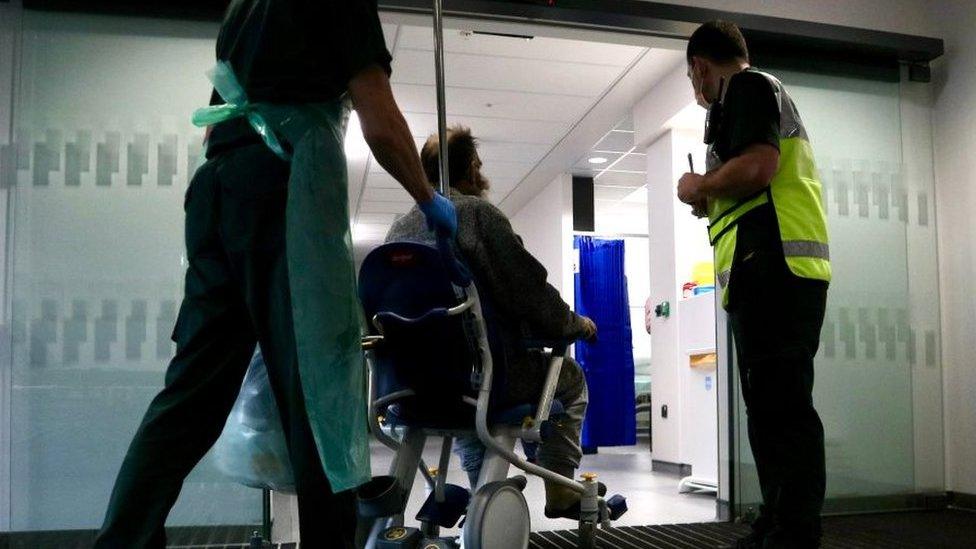
- Published4 July 2022
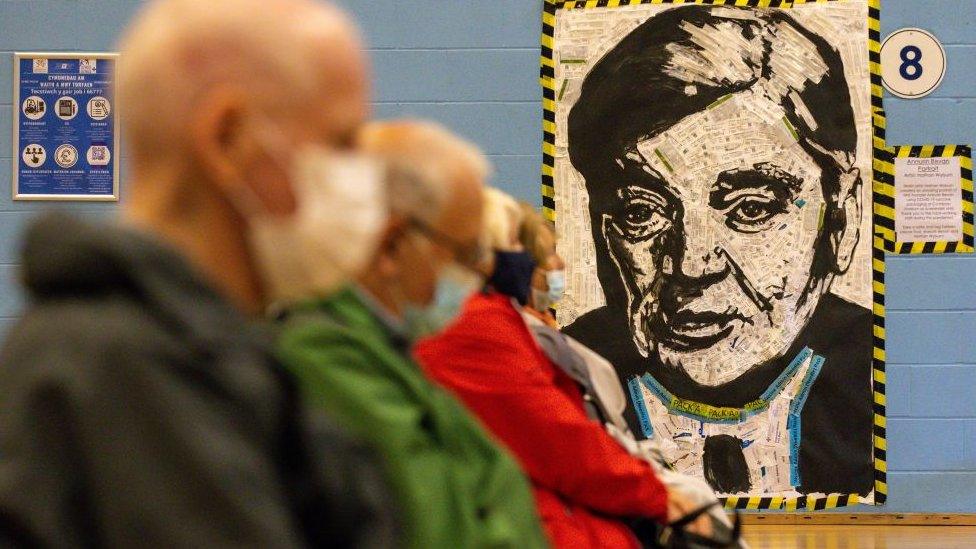
- Published14 September 2021
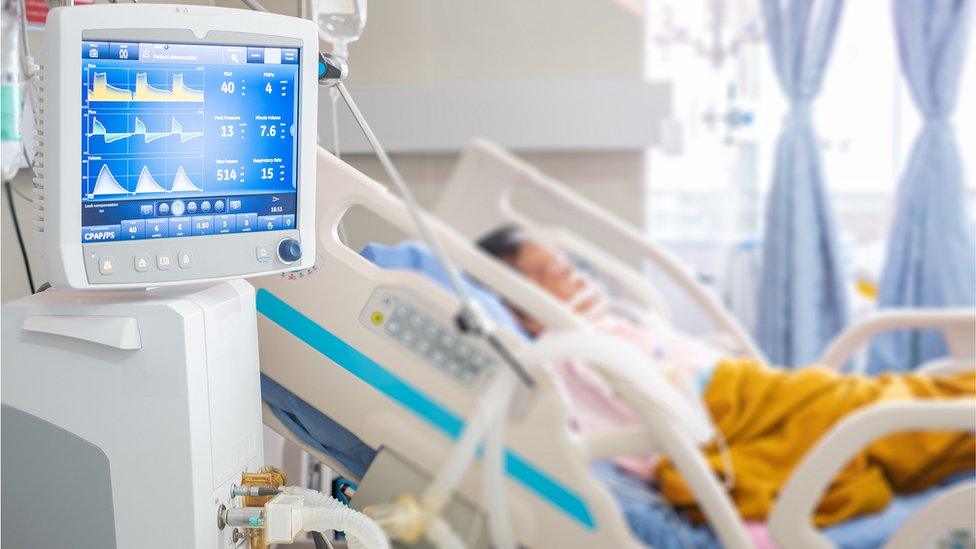
- Published12 September 2021
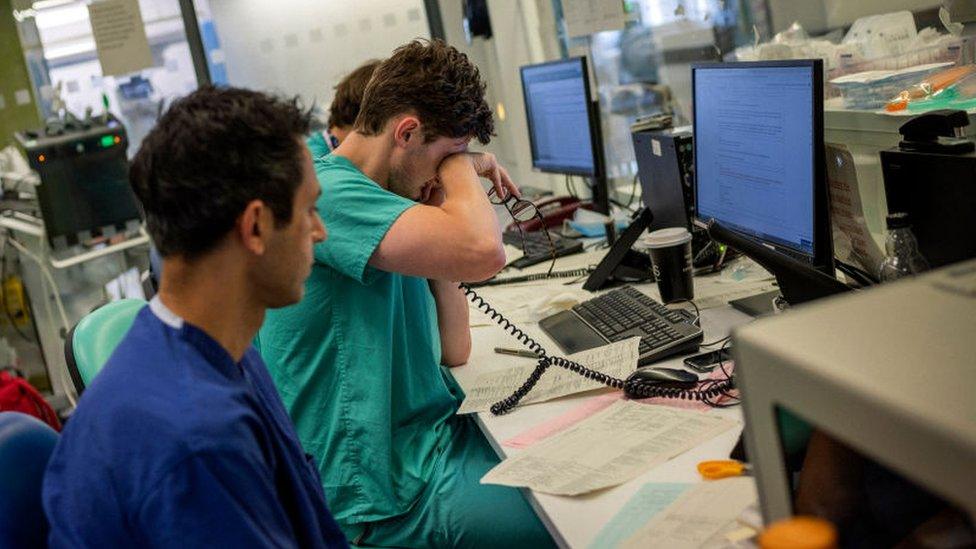
- Published16 September 2021
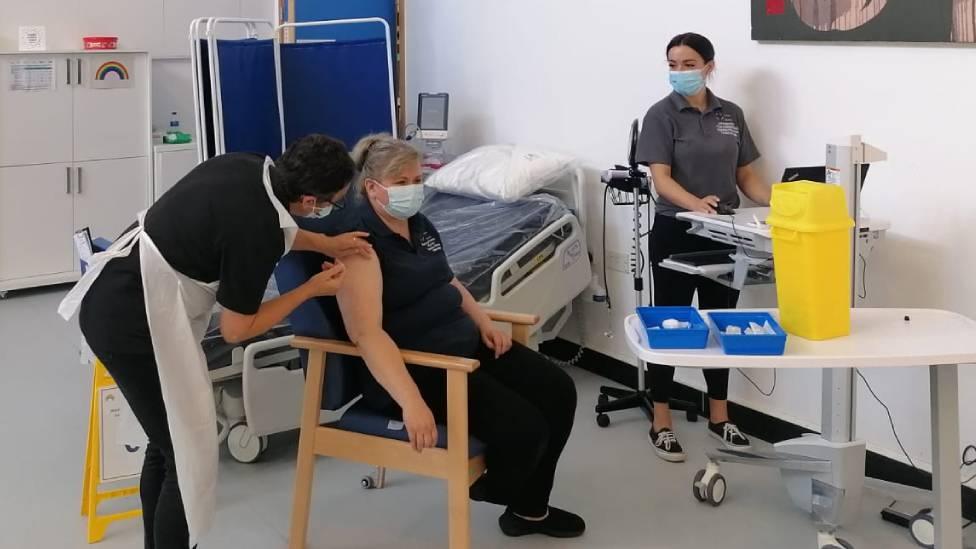
- Published17 September 2021
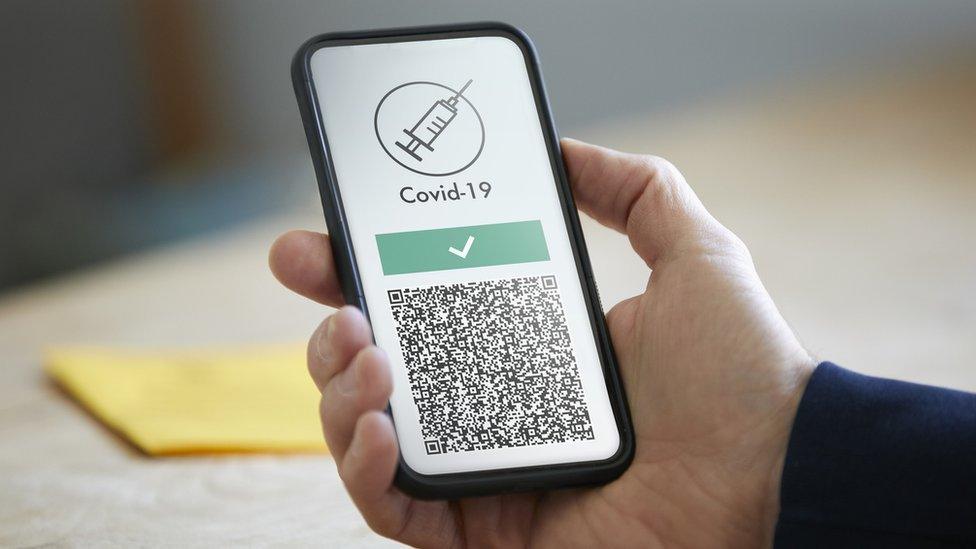
- Published6 January 2021
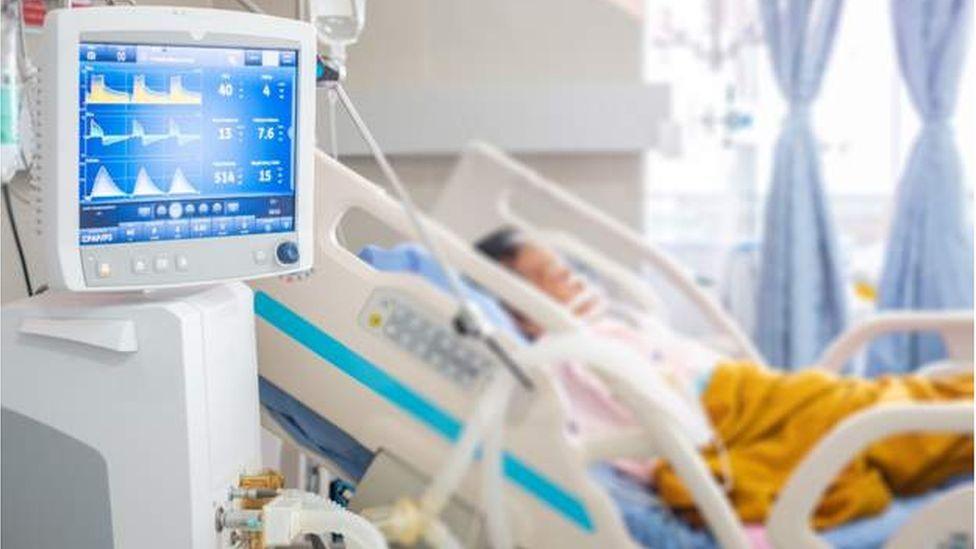
- Published9 August 2021
